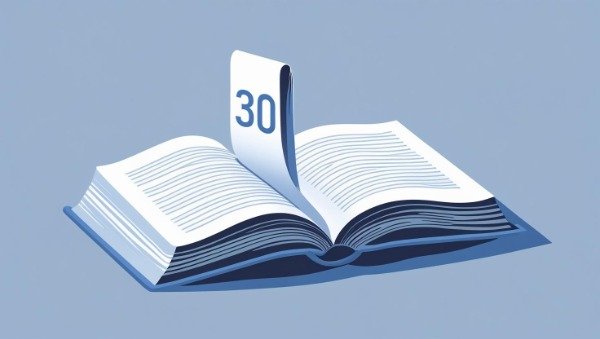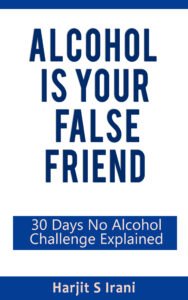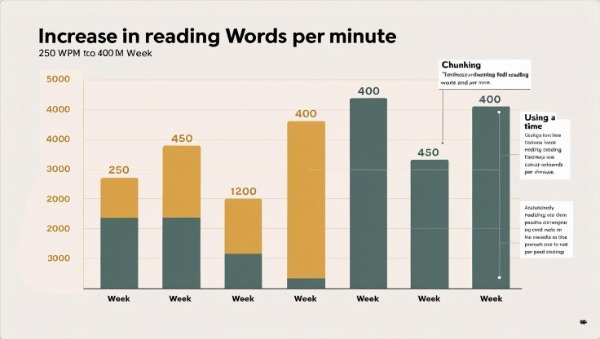7 Proven Steps How to Start a 30-Day Reading Challenge and Transform Your Reading Habits

Table of Contents: 7 Proven Steps How to Start a 30-Day Reading Challenge
Why a 30-Day Reading Challenge?
- Step 1: Set Clear, Achievable Goals for Your Reading Challenge
- Define Your Reading Target
- Align with Your Interests
- Track Your Progress
- Step 2: Create a Realistic Reading Schedule
- Identify Time Pockets
- Use Time-Blocking
- Batch Reading for Busy Days
- Step 3: Choose the Right Books for Your Challenge
- Diversify Your Reading List
- Use Book Recommendation Tools
- Balance Length and Difficulty
- Step 4: Overcome Common Reading Obstacles
- Conquer Time Constraints
- Combat Procrastination
- Stay Motivated
- Step 5: Leverage Tools and Technology
- Reading Apps
- Productivity Tools
- E-Readers and Audiobooks
- Step 6: Engage with a Reading Community
- Join Online Communities
- Start or Join a Book Club
- Share Your Journey
- Step 7: Reflect and Adjust for Long-Term Success
- Review Your Progress
- Celebrate Your Wins
- Plan Your Next Challenge
- Frequently Asked Questions About Starting a 30-Day Reading Challenge
- How Many Books Should I Aim to Read in a 30-Day Reading Challenge?
- How Can I Find Time to Read with a Busy Schedule?
- What If I Fall Behind in My Reading Challenge?
- How Do I Choose Books for My Reading Challenge?
- Can Audiobooks Count Toward My Reading Challenge?
- How Can I Stay Motivated Throughout the 30 Days?
- What Apps or Tools Can Help with My Reading Challenge?
- What Should I Do After Completing My 30-Day Reading Challenge?
- Conclusion: Start Your 30-Day Reading Challenge Today
- References
7 Proven Steps to Start a 30-Day Reading Challenge and Transform Your Reading Habits
Are you a book lover struggling to find time to read amidst a busy life? A 30-day reading challenge can be the perfect way to reignite your passion for books, build a consistent reading habit, and achieve your reading goals. Whether you are aiming to read one book or several in a month, this comprehensive guide will walk you through seven actionable steps to start your reading challenge today, overcome common obstacles, and make reading a joyful part of your routine. With practical tips, tools, and strategies, this post is designed to help you succeed where others falter, ensuring you not only start but complete your monthly reading challenge with confidence.

Why a 30-Day Reading Challenge?
A reading challenge is more than just a goal to read more books. It is a structured way to prioritize reading, enhance your knowledge, and boost your mental well-being. Research from the University of Sussex shows that reading for just six minutes a day can reduce stress by up to 68% (Lewis et al., 2009). A 30-day reading challenge offers a short, manageable timeframe to build a habit, making it ideal for busy professionals, parents, or students and anyone who struggles to find time to read. By committing to a monthly reading challenge, you can:
- Develop a daily reading habit: Consistency is key to making reading a natural part of your life.
- Explore new genres: Expand your horizons and discover books you might not otherwise read.
- Boost cognitive skills: Reading enhances memory, focus, and critical thinking.
- Join a community: Connect with other readers through platforms like Goodreads or book clubs.
This guide will show you how to start your reading challenge now, addressing pain points like time constraints and lack of motivation, so you can transform your reading habits in just 30 days.
Step 1: Set Clear, Achievable Goals for Your Reading Challenge
The foundation of any successful 30-day reading challenge is a well-defined goal. Without clarity, it is very easy to lose focus or feel overwhelmed. Use the SMART goal framework (Specific, Measurable, Achievable, Relevant, Time-bound) to set yourself up for success.
Define Your Reading Target
Decide how many books or pages you want to read in 30 days. For beginners, aim for one book (approximately 250–300 pages) or 10–15 pages per day. For avid readers, consider two to three books or a mix of genres. For example:
- Beginner: Read one novel (e.g., The Alchemist by Paulo Coelho, ~200 pages).
- Intermediate: Read two books, mixing genres (e.g., a non-fiction book like Atomic Habits by James Clear and a fiction book like Where the Crawdads Sing by Delia Owens).
- Advanced: Read three books, including a challenging classic (e.g., Pride and Prejudice by Jane Austen).
Align with Your Interests
Choose books that excite you to ensure motivation. If you love self-improvement, pick books like The Power of Habit by Charles Duhigg. If fiction is your preference, try a bestseller like Project Hail Mary by Andy Weir. Aligning your reading challenge with your interests makes it easier to stay committed.
Track Your Progress
Use a tracking tool to monitor your progress. Apps like Goodreads or StoryGraph allow you to log books, set goals, and see your reading stats. Alternatively, create a simple spreadsheet or bullet journal to mark daily reading achievements.
Step 2: Create a Realistic Reading Schedule
Time is the biggest barrier for busy readers, but a 30-day reading challenge can fit into even the most hectic schedules with proper planning. The key is to carve out dedicated reading time and make it non-negotiable.
Identify Time Pockets
Audit your daily routine to find small windows for reading. Here are practical ideas:
- Morning: Read for 10–15 minutes with your coffee before starting work.
- Commute: Use audiobooks or e-readers during bus or train rides (try Audible or Libby for audiobooks).
- Lunch Break: Dedicate 20 minutes to reading instead of scrolling social media.
- Evening: Wind down with 30 minutes of reading before bed to replace screen time.
Use Time-Blocking
Schedule specific times for reading using a calendar or app like Google Calendar. For example, block 7:00–7:30 PM daily for your reading challenge. Treat this time as a meeting with yourself—non-negotiable and sacred.
Batch Reading for Busy Days
If your schedule varies, batch reading on less busy days (e.g., weekends). For instance, reading 50 pages on Saturday can cover a few missed weekdays. Flexibility ensures you stay on track without stress.
Step 3: Choose the Right Books for Your Challenge
Selecting the right books is critical to maintaining motivation during your monthly reading challenge. A mix of engaging, accessible, and diverse titles will keep you excited and prevent burnout.
Diversify Your Reading List
Incorporate a variety of genres to make your reading challenge dynamic:
- Fiction: Try a thriller like The Silent Patient by Alex Michaelides for fast-paced reading.
- Non-Fiction: Choose a practical guide like Deep Work by Cal Newport for professional growth.
- Short Stories or Essays: Opt for collections like The Best American Short Stories for quick reads on busy days.
- Classics: Include a shorter classic like Animal Farm by George Orwell for depth.
Use Book Recommendation Tools
Struggling to choose? Use these resources:
- Goodreads: Browse user reviews and curated lists (e.g., “Best Books of 2025”).
- StoryGraph: Get personalized recommendations based on your mood and preferences.
- What Should I Read Next?: Enter a favorite book to find similar titles.
Balance Length and Difficulty
Mix shorter books (150–200 pages) with longer ones (300+ pages) to avoid overwhelm. For example, pair The Great Gatsby (~180 pages) with Educated by Tara Westover (~350 pages) for variety.

Step 4: Overcome Common Reading Obstacles
Conquer Time Constraints
If you are too busy, integrate reading into existing habits:- Habit Stacking: Pair reading with another routine, like reading while eating breakfast.
- Audiobooks: Listen while cooking, exercising, or commuting to “read” hands-free.
- Micro-Reading: Read for 5–10 minutes during breaks to accumulate progress.
Combat Procrastination
Procrastination often stems from feeling overwhelmed. Break your 30-day reading challenge into smaller milestones (e.g., 50 pages per week). Reward yourself for hitting milestones, such as treating yourself to a coffee or a new book.Stay Motivated
Keep your enthusiasm high by:- Joining a reading challenge community
- Sharing your progress on social media
- Visualizing your success: Imagine the satisfaction of completing your monthly reading challenge.
Step 5: Leverage Tools and Technology
Technology can supercharge your reading challenge now by making tracking, planning, and reading more efficient. Here are the best tools to use.
Reading Apps
- Goodreads: Set goals, track progress, and join reading challenges with millions of users.
- StoryGraph: Offers detailed analytics and mood-based recommendations.
- Libby: Borrow free e-books and audiobooks from your local library.
Productivity Tools
- Notion: Create a reading dashboard to track books, pages, and notes.
- Trello: Use a board to organize your reading list and deadlines.
- Habitica: Gamify your reading challenge by earning rewards for daily reading tasks.
E-Readers and Audiobooks
- Kindle: Highlight passages and sync progress across devices.
- Audible: Listen to books during commutes or chores for flexibility.
- Kobo: Supports library borrowing and offers a distraction-free reading experience.
Step 6: Engage with a Reading Community
A 30-day reading challenge is more fun and sustainable when you connect with others. Community support provides accountability and inspiration.
Join Online Communities
- Goodreads Groups: Participate in groups like “The 52 Book Club” for discussions and challenges.
- Reddit: Engage in r/books or r/52book for tips and recommendations.
- Instagram: Follow #Bookstagram accounts for inspiration and share your progress.
Start or Join a Book Club
Local or virtual book clubs can enhance your reading challenge. Discussing books with others deepens understanding and keeps you motivated. Check Meetup.com for local clubs or start one with friends.
Share Your Journey
Post updates about your monthly reading challenge on social media. Use platforms like X or Instagram to share quotes, reviews, or photos of your books. Encourage followers to join you with a hashtag like #30DayReadingChallenge.
Step 7: Reflect and Adjust for Long-Term Success
Completing your 30-day reading challenge is just the beginning. Reflection and adjustment ensure you maintain your reading habit beyond the month.
Review Your Progress
At the end of 30 days, assess your success:
- Did you meet your page or book goal?
- Which strategies worked best (e.g., audiobooks, time-blocking)?
- What challenges did you face, and how can you address them next time?
Celebrate Your Wins
Reward yourself for completing your reading challenge today:
- Treat yourself to a new book or a cozy reading accessory (e.g., a book light).
- Share your achievement on social media or with your book club.
- Reflect on how reading enriched your life (e.g., new knowledge, reduced stress).
Plan Your Next Challenge
Use your 30-day success as a springboard for a longer challenge, like a 6-month or yearly reading challenge. Adjust your goals based on what you learned (e.g., increase to two books per month or focus on a new genre).

Conclusion: Start Your 30-Day Reading Challenge Today
A 30-day reading challenge is a powerful way to reclaim time for reading, overcome a busy schedule, and build a lasting habit. By setting clear goals, creating a schedule, choosing engaging books, leveraging tools, and connecting with a community, you can transform your reading life in just one month. Start your reading challenge now and discover the joy, knowledge, and growth that books bring.
Ready to dive in? Share your 30-day reading challenge goal in the comments below! What book will you start with, and how will you make time to read? Let us inspire each other to read more in 2025.
References
- Lewis, D., et al. (2009). Reading and Stress Reduction. University of Sussex. [Link to study if available]
- (2025). Reading Challenge Feature. https://www.goodreads.com/challenges
- (2025). Personalized Book Recommendations. https://www.thestorygraph.com
- Duhigg, C. (2012). The Power of Habit. Random House.
- Clear, J. (2018). Atomic Habits. Penguin Random House.
Frequently Asked Questions About Starting a 30-Day Reading Challenge
To help you kick off your reading challenge with confidence, we have compiled answers to the most common questions about starting a 30-day reading challenge. These tips will address your concerns, from time management to book selection, so you can begin your reading challenge now and succeed.
How Many Books Should I Aim to Read in a 30-Day Reading Challenge?
The number of books depends on your reading speed and available time. For a monthly reading challenge, beginners should aim for one book (about 200–300 pages), which breaks down to 7–10 pages per day. Intermediate readers can target two books, while advanced readers might aim for three. Adjust based on your schedule—quality matters more than quantity. For example, reading The Alchemist by Paulo Coelho (~200 pages) is achievable for most busy readers.
How Can I Find Time to Read with a Busy Schedule?
Finding time for a reading challenge today is easier than you think. Try these strategies:
- Morning Routine: Read 10–15 minutes before starting your day.
- Commute: Use audiobooks via Audible or Libby during travel.
- Micro-Reading: Squeeze in 5-minute sessions during breaks.
- Evening Wind-Down: Replace screen time with 20–30 minutes of reading.
Time-blocking, as outlined in Step 2, can help you prioritize reading. Even 15 minutes daily adds up to over 7 hours of reading in 30 days!

What If I Fall Behind in My Reading Challenge?
Falling behind is natural, but don’t give up on your 30-day reading challenge! Catch up by:
- Batching Reading: Dedicate an hour on weekends to cover missed pages.
- Switching Formats: Use audiobooks to read while multitasking.
- Adjusting Goals: If needed, reduce your page goal slightly to stay motivated.
Track progress with apps to stay accountable. Celebrate small wins to regain momentum.
How Do I Choose Books for My Reading Challenge?
Select books that align with your interests to keep your reading challenge engaging. Mix genres for variety:
- Fiction: Try a thriller like The Silent Patient by Alex Michaelides.
- Non-Fiction: Pick Atomic Habits by James Clear for practical insights.
- Short Reads: Opt for novellas like Of Mice and Men by John Steinbeck.
Use tools like StoryGraph or What Should I Read Next? for personalized recommendations. Step 3 in the main article provides more tips for curating your reading list.
Can Audiobooks Count Toward My Reading Challenge?
Absolutely! Audiobooks are a valid way to participate in a monthly reading challenge, especially for busy readers. Platforms like Audible or Libby offer thousands of titles. Listening at 1.5x speed can help you cover more ground. For example, a 6-hour audiobook can be completed in a week by listening for 1 hour daily during commutes or chores.
How Can I Stay Motivated Throughout the 30 Days?
Maintaining motivation is key to completing your reading challenge now. Try these tips:
- Join a Community: Engage with Goodreads groups or Reddit’s r/52book for support.
- Share Progress: Post updates on X or Instagram with #30DayReadingChallenge.
- Reward Yourself: Treat yourself to a new book or a coffee after hitting milestones.
Step 4 in the article offers more strategies to combat procrastination and stay inspired.
What Should I Do After Completing My 30-Day Reading Challenge?
Celebrate your success and plan for the future! Reflect on your progress (Step 7) by reviewing what worked and what didn’t. Reward yourself with a new book or a cozy reading accessory. Consider extending your reading challenge today into a 6-month or yearly goal. For example, aim for 12 books in 2025 by repeating the monthly reading challenge process.
Have more questions about your 30-day reading challenge? Share them in the comments below, and let us know how you are planning to start your reading challenge!




